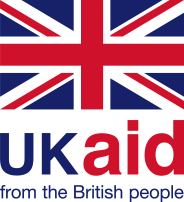Label STEP’s partnership with UKaid सीप is working to revitalize Nepal’s high-value carpet industry by decentralizing the carpet manufacturing hub from Kathmandu to Sarlahi in Madhesh Province that has traditionally served as the origin of Nepal’s weaving community.
Building on Pilot Learning to Scale Partnership with Hand-knotted Rug Industry
To a large extent, decentralization work done during the pilot phase has been able to provide the way ahead in tackling the chronic problem of skilled artisan shortage in the industry. With investments and interventions since the pilot phase in 2019—from leading national and international carpet manufacturers and designers, this partnership has helped establish fair-trade weaving workshops in Sarlahi where local women, primarily from migrant households and disadvantaged groups, are skilled and placed—using competency standard and industry-led skills training and certification to ensure availability of qualified and committed artisans. During the scale-up phase that kicked off this quarter, this partnership continues to improve the livelihoods of the marginalized communities further cementing skills development as well as by promoting artisanal rug industry of Nepal.
However, during the pilot implementation, we learnt that to sustain the decentralization as well as to lower the cost of production, entire range of value chain activities such as carding, dyeing, and washing needs to be decentralized as well. This makes carpet production cost effective and, bring in more exporters to manufacture their carpets in Sarlahi which in turn can provide regular work opportunities for the trained artisans and workers. Not to mention, some of the expanded and newer job roles opens avenues for the people with disabilities as well. Decentralizing the entire carpet industry requires substantial capital including technical investments as well as capacity development of the partners in addition to the skilling needs of the weavers and workers for which the UKaid सीप’s challenge fund support is proving critical.
TOP LEARING CAPTURED DURING THE PILOT
- Inclusion of people living with disability: Inclusion of PWDs has been one of the biggest learnings during the pilot phase. We have realized that without a strong resourcing and dedicated technical support, inclusion of people with disability cannot be achieved. And therefore, during the scale-up phase, STEP has collaborated with local pro-PWD organization Prerana Association to set-up a PWD friendly unit in Malangwa, Sarlahi. The infrastructure of this unit is built in a way to enable PWDs to participate in the carpet weaving training and employment then after. Total of 50 PWD trainees will be enrolled in weaving and up to 25 PWDs will be trained and hired in home-based job roles such as carding. The factory in Sarlahi offers a socioeconomic pathway for the PWDs and social value this brings to rug industry is immense.
- Co-location of value chain activities pertaining to hand knotted carpet production in Madhesh Pradesh to improve product competitiveness: This has further enhanced the gender and social inclusion aspect given how this expands the pathway for the most marginalized and disadvantaged communities of Madhesh Pradesh through this partnership. Women from minority communities including from Dalit and Madheshi communities are for the first time receiving weaving and other related skill set that have well- established international markets. Understanding the multiple benefits of co-location, including availability of skilled artisans trained in line with international quality requirements using the comprehensive manual co-developed with the industry association and quality controller—during the scale-up phase STEP will continue to skill and expand the production processes by enhancing the artisan’s skills on rest of the value chain activities such as hand carding, spinning, dyeing, washing, finishing besides weaving. This would ultimately bring all the production processes at the local level and improve product competitiveness. Focusing on weaving activities and undertaking rest of the value chain production process in Kathmandu add to the overall costs of carpet production.
- Enhancement of digital application/ infrastructure to promote skilling and remote production: During the pilot, we developed technology-backed performance monitoring and quality control system developed for the first time which led to systematic skilling and remote-based monitoring of the weavers. All weavers are registered in the app, from the time of enrolment in trainings to deployment at work, and their performance tracked and linked to certification. Based on the impact of this technology, STEP is importing it to its work in Afghanistan. The weaver management app developed by सीप and STEP under artisan villages project will be adapted to Afgani context—in a home-based setting—and implemented for better quality control and efficient production.
- Improve organizational and production management capacities of firm within Artisan Villages: This is one of key areas of capacity building for the scale-up phase based on the learnings of the pilot, where local producers were found resourceful on aspects of quality monitoring however, lacked the required managerial skill set and know-how to fulfill the production needs of the international markets. Concerted efforts including significant resources would be put into production management trainings for more holistic production management and closer Kathmandu exporter integration which was a key gap during piloting phase.
|
More on our partnership with STEP: seepnepal.com/media/1958/label-step-partnership-snapshot-scale-up.pdf |


